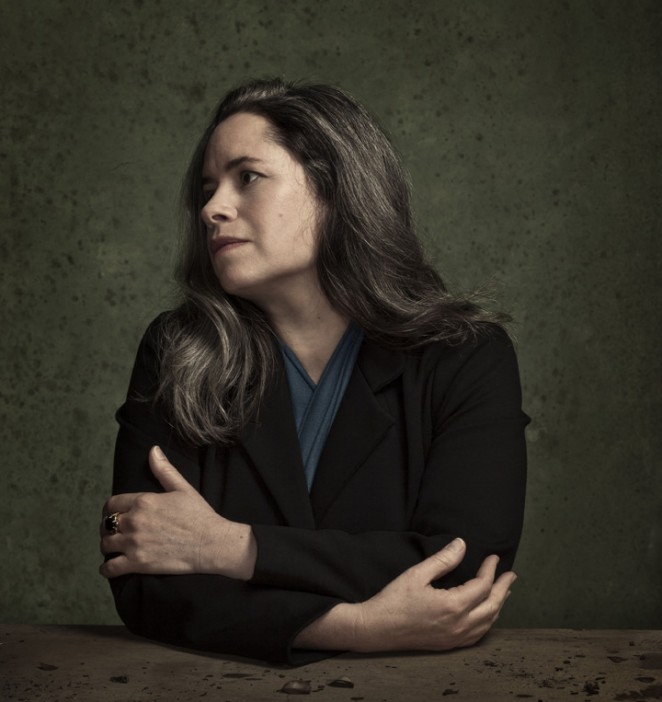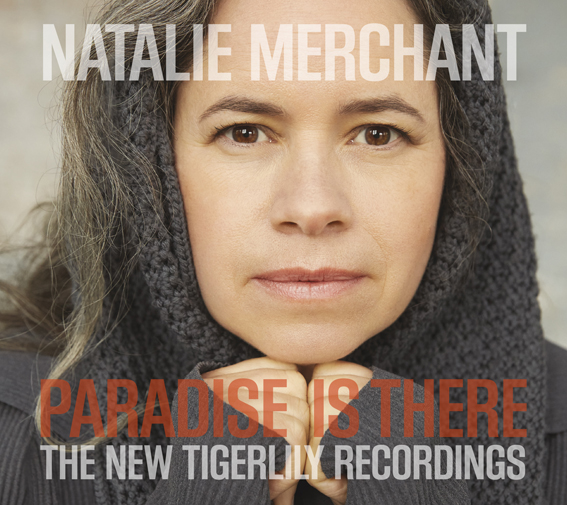
Paradise is There: The New Tigerlily Recordings revisits Natalie Merchant’s watershed solo debut, Tigerlily, in new arrangements that reflect two decades of evolution since its release. Australian Musician’s Greg Phillips spoke to Natalie about the Tigerlily journey
In celebration of the 20th anniversary of her landmark, multi-platinum selling album Tigerlily, Natalie Merchant has re-recorded those songs (this time orchestrated versions), re-titled the album (Paradise is There: The New Tigerlily Recordings), re-ordered the track listing and released it along with a documentary film on the making of both the original and the new recordings. The film not only discusses the origins of the songs but also focusses heavily on Natalie’s fans and the effect Tigerlily has had on their lives. For an album which was such an important part of many of her fans’ lives, why would she meddle with it and did she have any reservations about doing it?
“I guess now that I’m releasing it, the only reservation that I’m having… and now it’s too late for that … is that people might think its just a re–packaging of the old record because of the twentieth anniversary and she lacks imagination and she has no inspiration and she couldn’t come up with a new record,” Natalie tells me. “The motivation for the record initially was that I have been doing these orchestral shows for the last five years and building a catalogue of orchestral repertoire of orchestrated music. It was from all my catalogue and original new material too but I found that I kept going back to Tigerlily as a source for this material. First we did The Letter and then we did Beloved Wife and then we did River and I May Know The Word. Every time we went back into that well of Tigerlily, I rediscovered how much I loved the material but also that the strings gave them a completely new dimension. I wanted to share it on the recording because I was only doing one or two orchestral shows a month, so only a few thousand people are hearing the songs. The main reason I chose to rename the album was that I didn’t want to just call it Tigerlily revisited or anything like that. Even though it was the same handful of songs, it felt like a new album to me.”
Natalie Merchant has always had strong ideas about the way she wants her music portrayed and even stronger ideals about the world she’s releasing her music into. She learned much from her time with the band 10,000 Maniacs in the 80s and learned even more when she moved away from the rat race to a country house in the Hudson Valley, taught herself piano and set up a home studio. It was here 20 years ago, amid the trials and tribulations of the sessions with her musician friends, where Tigerlily, her debut solo album was conceived.
“I think when I went into the studio to make Tigerlily it was a very chaotic process,” she recalls. “It was a very frightening process. I’ve always been the youngest member of 10,000 Maniacs and we always worked with a producer. I’d been observing and I think I’ve had some good teachers with Joe Boyd and Peter Asher and Paul Fox but there were things that they did that I didn’t want to do. I didn’t want to dominate the session and that’s why there’s no producer credit on the album. I thought that would imply that someone was … you know … some omnipresence, or force and it didn’t feel like that. It was much more organic and that’s the way my production style has remained and I’m open to suggestion and experimentation in the studio. It’s like, I guess what I learned is that I didn’t really need a producer. I enjoyed not having one in the room because it further invested everyone in the project … they didn’t feel like someone was in charge. But it also created a lot of chaos.”
 The film, Paradise Is There: A Memoir by Natalie Merchant, which accompanies the deluxe version of the new album contains live performances, archival footage, and interviews with musicians, friends, and fans about the influence the songs on Tigerlily have had over the past 20 years. In it, there’s Kate and Kelly Daley, twins with a rare skin disorder who are captured on film before their deaths, describing what the song Wonder meant to them and how Natalie was so kind to them, inviting them to her home studio to write and record with her. There’s Alexa, another girl with a disability who used to play Wonder to “lift herself up to keep going”. Bryce was a US soldier who was part of the initial ground forces into Baghdad, who explains how he used to play Natalie’s music to calm down after rocket attacks. There are many more stories told in the film but I wondered if Natalie herself had ever been affected by an artist in a similar way?
The film, Paradise Is There: A Memoir by Natalie Merchant, which accompanies the deluxe version of the new album contains live performances, archival footage, and interviews with musicians, friends, and fans about the influence the songs on Tigerlily have had over the past 20 years. In it, there’s Kate and Kelly Daley, twins with a rare skin disorder who are captured on film before their deaths, describing what the song Wonder meant to them and how Natalie was so kind to them, inviting them to her home studio to write and record with her. There’s Alexa, another girl with a disability who used to play Wonder to “lift herself up to keep going”. Bryce was a US soldier who was part of the initial ground forces into Baghdad, who explains how he used to play Natalie’s music to calm down after rocket attacks. There are many more stories told in the film but I wondered if Natalie herself had ever been affected by an artist in a similar way?
“Many artists,” she says without hesitation. “I’d have to say Nina Simone and Mahalia Jackson, Joni Mitchell, Leonard Cohen, Bob Dylan. I mean there’s a new record by Amy Helm, Levon Helm’s daughter who is actually a friend of mine and a neighbour. There’s a song on her record that … my father just died last month and when I had to go and essentially help him die … there was a song that really helped me through that extreme. Every time I would leave the hospital, the song I would just play over and over. When I was on my way to his funeral, I played it over and over. When I had a long drive home after the funeral, I played it over and over. I feel like writing her letter and thanking her for that song, so I have definitely had that experience myself.”
Music can be such a powerful force and Natalie knows that as well as anyone. The artists who have influenced her in such a major way, were people whose music carried a message and had something to say. In the 20 years since Tigerlily was released, the world is hardly a safer place, nor is it in better shape environmentally but the ever-hopeful Natalie still believes that music can make a difference.
“I think it can console people and it can inspire people,” she says with purpose. “We were actually able to ban fracking in New York state. It’s illegal to frack in the state of New York. If you’d asked me that five years ago that we had a ban in this state, I would say you are out of your mind. Even though I went to the state capital and put my fists in the air and yelled ‘ban fracking now’ until I was hoarse … on multiple occasions, I never really believed that we could ban it. I played a small part in that cause. I organized this concert and was partially responsible for a film being made that was seen by tens of thousands of people in New York state. We had scientists and activists and farmers, Native Americans, we had all people from cities and rural areas, all come forward and speak at this event about the potential threat to both public health and the environment. People would speak and then we would show film and we would sing songs that were relevant. It felt like we appealed to people’s hearts and minds ultimately. The music really opened people up and gave them a place where they could really emotionally process the information that we were giving. I think that music can be used in that way so people can be penetrated. I think we put up a lot of defences especially when we are confronted with the kind of information that is available and you start talking about climate change, over population or the refugee crisis, the world is overwhelming. I mean I always remember the world as overwhelming but the scale of it is just inhumane. It’s really hard for us to understand and that’s where I think music can bring consolation to people and as I said it can inspire people.”
Re-recording the songs from Tigerlily has given Natalie the opportunity to reflect on her life, the music she has made and the people it has touched. Given the chance, would she have done anything differently? What advice would she give to her teen self, that 16 year old singer of 10,000 Maniacs if she ran into her now?
“Well you know Michael Stipe gave me the best advice of anyone in the music industry when I was 20 years old,” she says. “He said don’t sell your publishing and I never did. So I have complete creative control over my work. I think having no expectations is probably the best advice you could give someone. Make music because you’re passionate about it and don’t have any real expectations. You won’t be disappointed.”
Natalie Merchant’s Paradise Is There: The New Tigerlily Recordings, along with Companion Documentary on DVD is available now through Nonesuch Records


